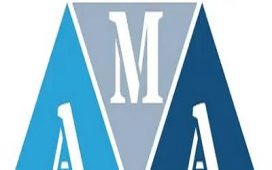Linux-loving software house SUSE is to quit the Frankfurt Stock Exchange and become a private company again, just two years after it listed in 2021.
On Wednesday the developer announced that its majority shareholder, an entity called Marcel LUX III SARL, intends to take it private by delisting it from the Frankfurt Stock Exchange and merging it with an unlisted Luxembourg entity.
Marcel is an entity controlled by EQT Private Equity, a Swedish investment firm, which acquired it from MicroFocus in 2018.
The announcement offers scant detail about the rationale for the delisting, other than a canned quote from SUSE CEO Dirk-Peter van Leeuwen who said, “I believe in the strategic opportunity of taking the company private – it gives us the right setting to grow the business and deliver on our strategy with the new leadership team in place.”
Van Leeuwen took the big chair at SUSE just over three months back, on May 1.
The deal values SUSE at €16 per share – well below the €30 price of the 2021 float, but above the Thursday closing price of €9.605.
Interestingly, Marcel is happy for shareholders not to take the money and run. “There is no obligation for shareholders to accept the Offer,” explains the announcement’s detail of the transaction’s structure. “EQT Private Equity does not intend to pursue a squeeze-out. Therefore, shareholders who wish to stay invested in SUSE in a private setting may do so.”
Shareholders who stick around will therefore score their portion of a special dividend SUSE will pay out as part of this transaction. Those who sell will get the aforementioned €16 per share, less their portion of the interim dividend.
The most recent expressions of the strategy that SUSE will apaprently find easier to pursue as a private entity were the June 2023 embrace of confidential computing and the July decision – revealed in van Leeuwen’s first blog post as CEO – to create its own Linux distro compatible with Red Hat Enterprise Linux.
That plan has since become somewhat moot since Red Hat’s sudden and shocking decision to stop making the source code of RHEL available to the public. SUSE, together with Oracle and others, have responded with a plan to create the Open Enterprise Linux Association (OpenELA) which will share everything it creates.
The transaction to take SUSE private is expected to conclude in the final quarter of 2023.
Van Leeuwen, his team, customers, and the wider SUSE and Linux communities then get to watch the OpenELA plan at work – without the pesky need to file quarterly financials and focus on enhancing shareholder value.
Across its 31-year history, SUSE has also been owned by Attachmate and Novell. Another set of owners may not, therefore, be entirely uncomfortable. ®











